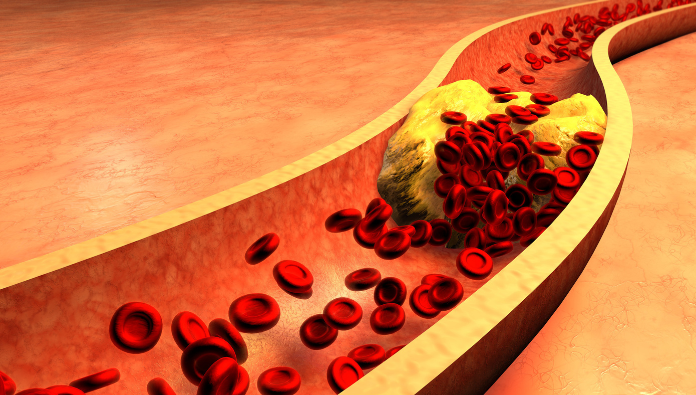

6 minute read
Diabetes 101: Understanding blood sugar basics
Published October 16, 2024. Last updated January 23rd, 2025.
If you're navigating the world of diabetes, you're not alone. Currently, an estimated 38 million Americans are living with diabetes, while over 97 million are at risk with prediabetes.¹ Whether you're looking to learn more, trying to reduce your risk, are newly diagnosed, or have been managing it for years, understanding diabetes can feel overwhelming. This article helps clear up the confusion by addressing causes, symptoms, prevention, and debunking myths along the way.
What is diabetes?
Diabetes is a health condition that affects how your body handles glucose (sugar), the body's main source of energy. When you eat, your body breaks down most of that food into glucose. This glucose then enters your bloodstream, causing blood sugar levels to rise. Your body notices this change, which triggers your pancreas to release the hormone insulin.² Insulin then travels through your bloodstream, telling cells to open up and let glucose in. Once inside, cells can use glucose as energy or store it for later use.³
In diabetes, the body doesn't make enough insulin, can't use it well, or both.¹ Because of this, too much glucose remains in the bloodstream instead of being absorbed by the cells. This leads to high blood sugar levels, a condition known as hyperglycemia (hi-per-gly-see-me-uh). Over time, hyperglycemia can damage blood vessels and cells, leading to serious long-term complications.²
Are type 1 and type 2 the only forms of diabetes?
No, there are different types of diabetes, but the 4 most common are:
- Type 1 diabetes is an autoimmune disease. This means the immune system, which is designed to protect the body from infections, mistakenly attacks and destroys the insulin-making cells in the pancreas. When the pancreas can't make or release insulin, the body can’t regulate glucose. This is why people living with type 1 diabetes (or T1D) need to take insulin every day to help manage their blood sugar levels. It’s often diagnosed in children and young adults, but it can develop at any age.³
- Type 2 diabetes is a form of diabetes that develops when the body doesn't make enough insulin, cells become resistant to insulin, or both. It's the most common type of diabetes, mainly affecting adults, but it can also develop in children. Unlike T1D, type 2 diabetes often develops slowly and is linked to factors like weight, diet, and physical activity.³
- Prediabetes is when your blood sugar levels are higher than normal, but not high enough to be diagnosed with type 2 diabetes. Most people with prediabetes don't have any symptoms. That's why regular checkups and blood tests (like Quest's Comprehensive Metabolic Panel (CMP) Test and Insulin Resistance Test Panel) are important—they're the only way to know if you have prediabetes. The good news is that with healthy lifestyle changes, it's possible to reverse prediabetes and even prevent type 2 diabetes.⁴
- Gestational diabetes is a form of diabetes that develops during pregnancy. It can happen when hormones affect how the body uses insulin. While gestational diabetes usually goes away after pregnancy, it increases the risk of developing type 2 diabetes later in life.³
Don't let diabetes catch you off guard.
Knowing your risk can help you make the best choices for your health.
Most people with certain types of diabetes don't know it because they don't have symptoms. The signs can be so subtle that they’re easy to miss. Catching prediabetes early gives you the chance to make changes before diabetes develops.⁴
Know your risk for diabetes with Quest's Diabetes Risk Panel, Hemoglobin A1c Test, Type 1 Diabetes Autoantibody Screening Test, and Insulin Resistance Test Panel.
Why do some people develop type 1 diabetes while others with the same risk factors don’t?
Type 1 diabetes is an autoimmune disease, though its exact trigger remains unknown. However, scientists do understand these factors[³⁻⁵]:
- Genetics play a role, but they’re not the whole story. While having a family history of type 1 diabetes increases your risk, many people with a genetic risk factor never develop it
- Environmental factors, like viruses, could trigger the autoimmune response
- Diet and lifestyle don’t cause type 1 diabetes. It’s not related to eating sugar or a lack of exercise
- The disease process can continue silently for months or even years before symptoms appear, but when they do, they can be severe
- We can’t currently predict who will develop type 1 diabetes, but tests can help identify the condition before symptoms start
Detect type 1 diabetes early—before symptoms even start.
Are you at risk for developing type 1 diabetes? Quest’s Type 1 Diabetes Autoantibody Screening Test can help you find out. If you have a family member with the condition, your risk is 15x higher. But even without a family history, you could still be at risk—about 90% of people diagnosed with type 1 diabetes DON’T have a family history of the disease.
Know your T1D risk. Take control of your health.
This test screens for certain autoantibodies in your blood that are linked to a higher risk of developing type 1 diabetes. These autoantibodies indicate that your immune system could be attacking the insulin-producing cells in the pancreas, often years before symptoms appear.
How can I prevent diabetes or lower my risk of developing it?
Different types of diabetes have different risk factors. For genetic or autoimmune forms, like type 1 diabetes, most risk factors are beyond your control and can’t be prevented. Other types have risk factors like age or family history that you also can't change.³ However, healthy lifestyle changes can help prevent or delay prediabetes and type 2 diabetes. This means—even if you or your loved ones are at risk for diabetes—there’s still time to improve your health with positive changes, like[³⁻⁴]:
- Adding more movement to your day
- Avoiding tobacco
- Eating a balanced diet
- Getting enough sleep
- Limiting alcohol
- Maintaining a healthy weight
- Managing stress
What are the symptoms of diabetes? What should I look for?
Not everyone will have symptoms or experience them the same. Symptoms can also vary depending on the type of diabetes, but some of the most common include[³⁻⁵]:
- Blurry vision
- Dry eyes, mouth, or skin
- Extreme fatigue (feeling very tired or run down)
- Frequent infections, including vaginal yeast infections
- Increased thirst or hunger
- Increased urination
- Itchy skin
- Slow-healing cuts, sores, or bruises
- Unexplained weight loss (especially with type 1 diabetes)
If you notice any of these symptoms, talk to your doctor right away.
Diabetes symptoms can develop slowly or quickly, depending on the type. The sooner diabetes is detected, the sooner it can be treated and managed. Being proactive about your health can help protect it in the long run.
1 out of every 3 US adults is living with prediabetes, and more than 80% don’t know they have it.⁶
What health conditions are associated with diabetes?
Diabetes can lead to other health conditions if it's not treated or well-managed. Some possible complications include[³⁻⁵]:
- Hyperglycemia
- Hypoglycemia (low blood sugar)
- Nerve damage
- Kidney disease
- Heart disease (including heart attack and stroke)
- Glaucoma
- Vision loss
- Hearing loss
- Skin infections
- Gum disease or dental issues
- Foot problems
- Sexual or bladder issues
Your health is important.
Quest’s Diabetes Management Test can help you understand it better. This test measures your current blood glucose level and hemoglobin A1c (HbA1c), which shows your average blood sugar over the past 3 months. Your results can help you understand how well your diabetes management plan is working, both in the short and long term.
Managing diabetes can get trickier with certain life changes.
As we age, it can become harder for our bodies to manage glucose. Hormonal changes during pregnancy or menopause can also lead to fluctuations in blood sugar levels. But with the right support from your healthcare team, you can make changes, keep your levels in check, and stay on top of it.
Perimenopause? Menopause? Where am I?
Whether you’re unsure if you’re just starting, or you’ve already waved goodbye, Quest has tests that can help you know where you’re at—and what’s going on.
• Menopause & Perimenopause Assessment Test Panel
• Post Menopause Assessment Test Panel
The same lab-quality hormone tests that doctors use and recommend, without the doctor’s visit required for purchase.
Learn more: Menopause: Understanding the stages, ages, signs, and symptoms
No doctor visit is required to buy your own lab test at questhealth.com. PWNHealth and its affiliates review your purchase to ensure it is medically appropriate before submitting the test order for processing. PWNHealth also reviews your test results and will contact you directly if they require prompt attention. Included in each purchase is the option to discuss your test results with an independent physician; however, you are also encouraged to speak with your primary healthcare provider.
Tests featured in this article:
References
- American Diabetes Association. Statistics about diabetes. Accessed October 1, 2024. https://diabetes.org/about-diabetes/statistics/about-diabetes
- MedlinePlus. Blood glucose. Accessed October 1, 2024. https://medlineplus.gov/bloodglucose.html
- Cleveland Clinic. Diabetes. Accessed October 1, 2024. https://my.clevelandclinic.org/health/diseases/7104-diabetes
- Cleveland Clinic. Prediabetes. October 1, 2024. https://my.clevelandclinic.org/health/diseases/21498-prediabetes
- National Institute of Diabetes and Digestive and Kidney Diseases (NIDDK). Diabetes overview. Accessed October 1, 2024. https://www.niddk.nih.gov/health-information/diabetes/overview
- Centers for Disease Control and Prevention (CDC). About prediabetes and type 2 diabetes. Accessed October 1, 2024. https://www.cdc.gov/diabetes-prevention/about-prediabetes-type-2
Other articles you may be interested in

Take charge of your health (and budget) with HSAs and FSAs
Knowing the difference between an HSA and an FSA can help you make the most of your healthcare benefits. Many of the lab tests available for purchase on questhealth.com are HSA-and FSA-eligible, so you can save money on your healthcare costs—and get health insights, on your terms.
Remove Product?
Shop Tests
Top Nav Jump Mobile
Top Nav Jump Shop Tests
Top Nav Jump Help Me Choose
Top Nav Jump Discover
Verify that it's you
We sent a verification code to
Haven't received a code or need a new code? Resend a new code
It may take a minute to receive your code. Be sure to check your email filter or spam folders.
All rights reserved. Copyright 2023
Address Verification
Quest does not currently support P.O. Box addresses, please update to a valid address.





